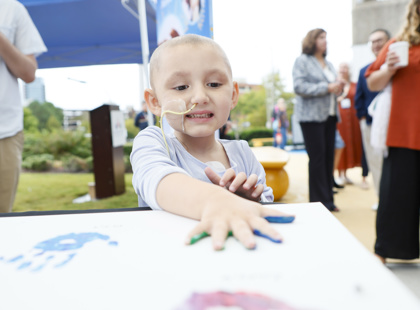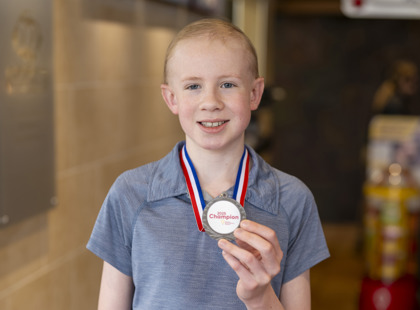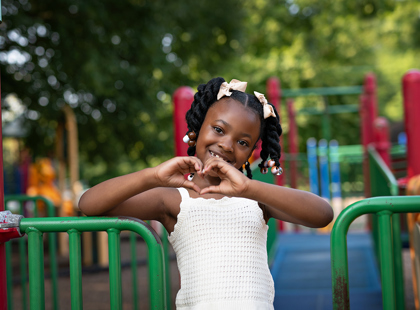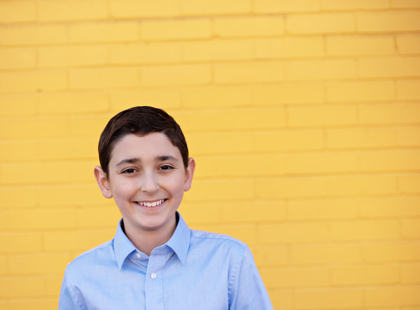Innovative inpatient units for kids with cancer and blood disorders
It’s been about a year since Darryl Addison and his wife Courtney heard the words: “Your son has cancer.”
As devastating as it was, it didn’t prepare the Chesapeake couple for what they learned next. Their 3-yearold son, Cayden, had a specific type of leukemia that is difficult to treat. Philadelphia chromosome positive acute lymphoblastic leukemia (Ph+ALL) has a mutation in its genetic code that can cause white blood cells to become cancerous.
“We prayed a lot,” says Darryl. “We wanted to be as optimistic as possible. We were just trying to hold each other up.”
In the months following Cayden’s diagnosis, the Addisons have spent many nights in CHKD’s inpatient unit for hematology and oncology patients. It’s been a home away from home for the family as Cayden progressed successfully from one phase of his treatment to the next.
In November, patients like Cayden were able to move to a newly created hematology/oncology unit on the 5th floor. The new unit features innovations such as 16 private rooms, each with its own bathroom and space for a parent to spend the night. Each room is also under positive pressure, providing an extra layer of protection for patients whose immune systems are compromised.
“It’s been designed to help make families feel as comfortable as possible while their child goes through treatment,” says Dr. Eric Lowe, a CHKD pediatric hematologist/ oncologist and medical director of the program.
Throughout the unit, families see uplifting images of majestic landscapes and hot air balloons that all fit into a theme of “soaring.”
Without a doubt, Cayden’s favorite part of the new unit is its colorful playroom where children can take a break and have some fun. While he loved to play the video games available, Cayden also enjoyed painting activities and pretending to cook at the miniature kitchen set.
When Cayden didn’t have the energy to head to the playroom, a child life specialist would visit him in his patient room, bringing him a special toy to make him smile. Sometimes it was construction blocks, a stuffed animal, or a toy car.
It’s small gestures like this that illustrate the type of care that families need when they face a critical diagnosis.
“Our healthcare providers have the most compassionate outlook when they’re taking care of these children and families,” says Colleen Grose, nurse manager of the hematology and oncology inpatient unit. “They truly go the extra mile. There is this genuine understanding of what these kids are going through.”
For the Addisons, it means everything to see how well Cayden is feeling today. Back at home, Cayden, now 4, spends his days playing with his older brother, Christian, and learning online to prepare for kindergarten. His appetite, along with his hair, is starting to come back, too. Cayden still needs to take a chemotherapy medication daily, but so far, none of his routine tests show any sign of cancer.





